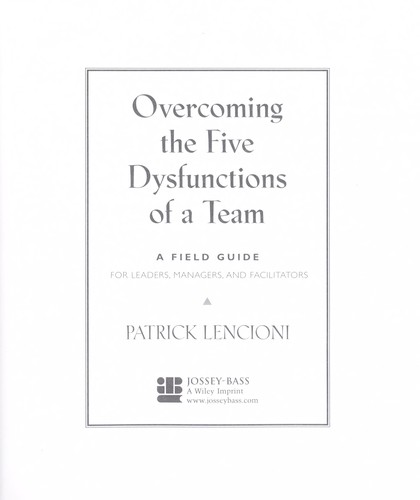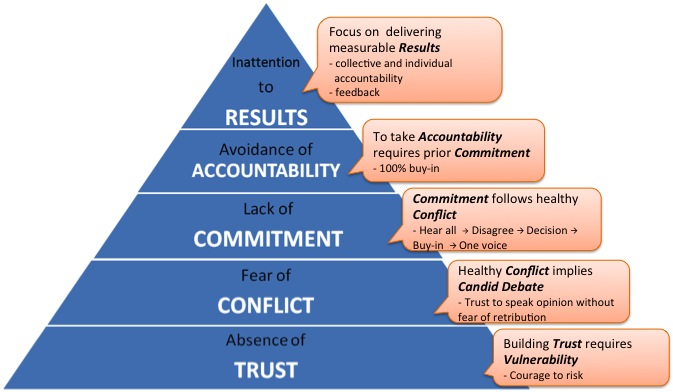
The way to release the tension is to have a “Willy” session. The occasional passive-aggressive attacks will be much nastier and cause damage.įrom time to time, we’ve had our own internal conflict. Rather than releasing it all out and getting it into the open, it manifests itself as a tension between the team. Ironically, avoiding conflict actually makes the interpersonal damage much worse. And if there is trust within the team, everyone walks away satisfied. They’ll discuss and resolve issues quickly. Teams engaging in productive conflict know that the only purpose of the engagement is to reach the best possible solution in the shortest period of time. There’s a big difference between productive conflict to destructive petty fighting. Conflict is very uncomfortable, but resistance is vital for growth. It is true in marriage, parenthood, friendship and certainly in the business context. Dysfunction 2: Fear Of ConflictĪll great relationships have productive conflict as the fuel for growth.

You’re creating an environment that rewards vulnerability, instead of punishing it.

But by setting the bar, it lets your team members know that it’s ok to take these same risks themselves. The most important action of the leader is to demonstrate vulnerability first. But as a leader, it’s your responsibility to foster this kind of team environment. This level of competitive rivalry can’t coexist with trust. Most of the time, team members are competitive with peers and protective of their personal reputation. This may sound obvious in some regard, but it is surprisingly rare. This means openly discussing weaknesses, skill deficiencies, interpersonal short comings, mistakes and requests for help. We’re talking about a deeper level of trust. We’re not talking about the basic ‘trust’ that someone will pull through on the deadlines they promised. The team can be vulnerable and share openly without the fear that any information they reveal will be used against them later.

With trust, you don’t need to be political, protective or careful around the group. In the context of building a team, ‘trust’ means you have the confidence that the intentions of all colleagues are good. Trust lies at the heart of a functioning team. According to author Patrick Lencioni, there are 5 dysfunctional elements within a team. By acknowledging the imperfections of humans, members of functional teams can overcome our natural tendencies and work together toward success. Human beings are inherently dysfunctional. A leader who can get their entire team rowing in the same direction can dominate any market in any industry.

The ultimate competitive advantage of successful organisations? Teamwork.


 0 kommentar(er)
0 kommentar(er)
